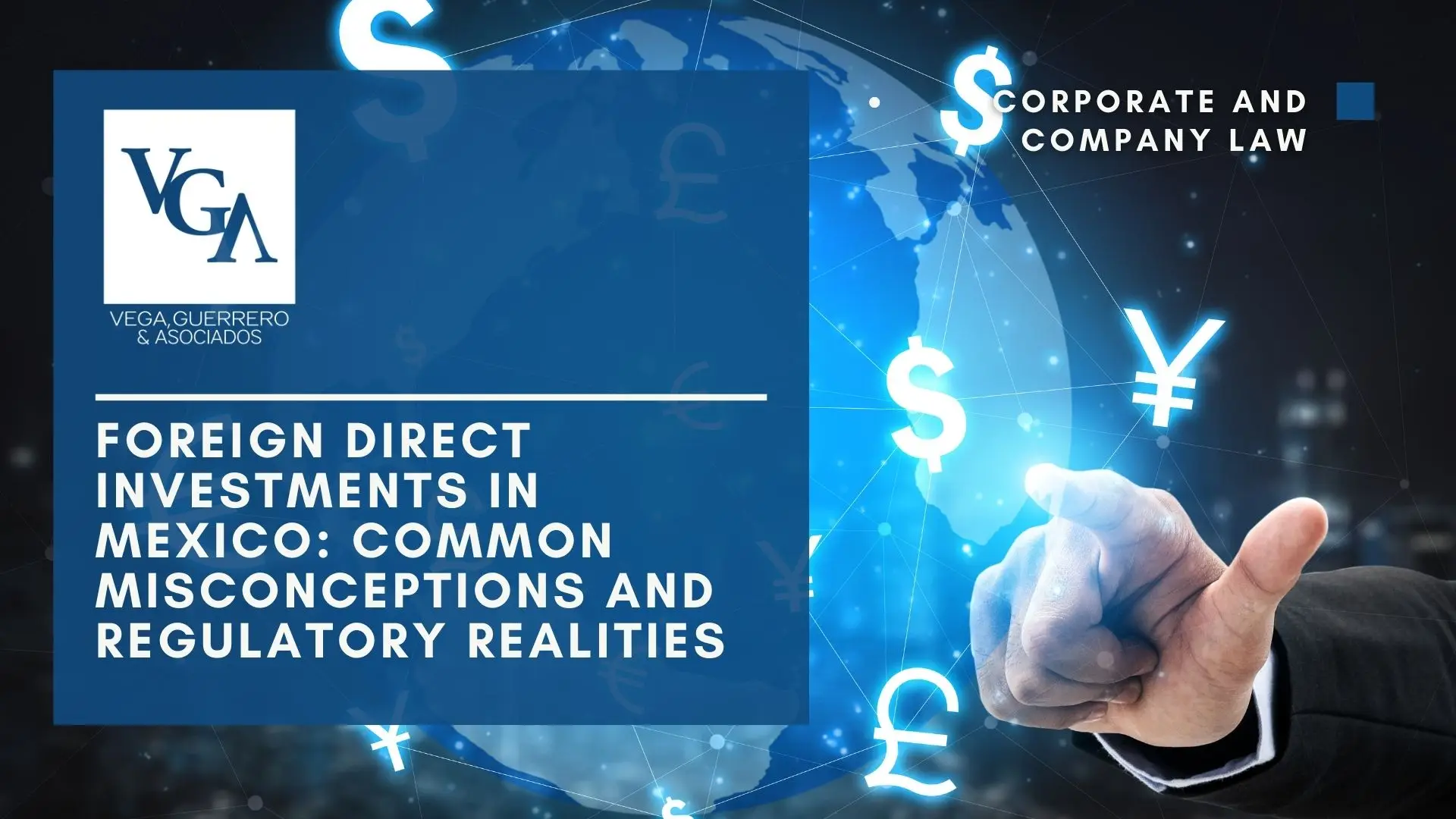By: Marco Tena
In the sphere of global economics, Mexico stands as a significant player, especially in the realm of Foreign Direct Investment (FDI).
Yet, despite its pivotal role, especially after the COVID-19 pandemic and in the context of nearshoring, numerous misconceptions cloud the understanding of its regulatory environment and investment dynamics.
This post aims to dispel these myths, offering a nuanced view of FDI in Mexico, emphasizing its legal frameworks and highlighting the conditions under which foreign investments operate.
Mexico’s journey with FDI has been transformative, reflecting a shift from a protectionist stance in the mid-20th century to a more liberal and open approach since the 1990s.
This evolution mirrors global economic trends and underscores Mexico’s recognition of FDI as a key driver for economic growth and technological advancement.
Central to understanding Mexico’s approach to FDI is the Mexican Foreign Investment Law (LIE). This legal cornerstone provides clarity and stability for foreign investors by defining the scope of foreign investment, outlining permissible sectors, specifying sector-specific restrictions, and establishing procedural norms for obtaining approvals.
Contrary to popular belief, the LIE embodies Mexico’s commitment to fostering a conducive environment for foreign capital.
Foreign investment in Mexico, as defined under the LIE, is broad and includes direct participation in Mexican entities, investments in companies with significant foreign capital, and involvement in sectors designated by the law.
The regulatory framework is further strengthened by the roles of the National Commission of Foreign Investments (CNIE) and the National Registry of Foreign Investments (RNIE). These institutions are pivotal in managing FDI activities and ensuring compliance with regulations, aligning foreign investment with national interests.
Addressing some common misconceptions, it is essential to note that Mexico’s stance on FDI is predominantly open. The LIE allows foreign investment in most sectors, with strategic areas like petroleum exploration and nuclear energy reserved for the state, reflecting national interest and sovereignty.
In sectors like broadcasting and transportation, foreign investment is capped, typically at 49%, to maintain a balance between foreign participation and domestic control.
For sectors or companies where foreign ownership exceeds 49%, obtaining CNIE approval becomes imperative. This requirement is particularly relevant in fields like legal services, private education, and railway transportation, where the balance of foreign and domestic influence is carefully regulated.
The financial sector, real estate investments in restricted zones, and transportation services are subject to specific FDI regulations. These stipulations ensure a level of domestic control and adherence to national policies, even as they provide avenues for foreign investment.
The authorization process for FDI in Mexico is characterized by transparency and efficiency. Foreign investors seeking entry into regulated sectors must comply with established thresholds and criteria, ensuring that their investments align with Mexico’s economic and social objectives.
The CNIE’s review process is comprehensive, evaluating factors like employment impact, technological contribution, environmental compliance, and national security considerations.
Recent developments in sectors like energy and strategic resources such as lithium have introduced some nuances to Mexico’s FDI landscape.
While these changes reflect a trend towards greater state involvement, particularly in resource management, they do not fundamentally alter the open nature of Mexico’s broader FDI framework.
Moreover, Mexico’s approach to national security in the context of FDI contrasts with more stringent global trends, as the country has not adopted extensive screening mechanisms for foreign state-owned enterprises or technology-related acquisitions. In conclusion, understanding the intricacies of Mexico’s FDI legal framework is crucial for foreign investors. Despite prevailing misconceptions, Mexico offers a stable, transparent, and attractive environment for foreign capital, characterized by an open general stance with specific regulations and exceptions to address national interests and security concerns. As global economic dynamics evolve, Mexico’s FDI policies continue to be a dynamic blend of openness and regulation, aligned with national priorities and global economic trends.




